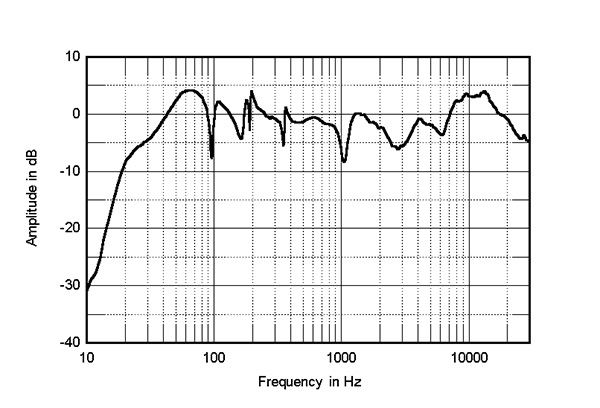What if there is no measurements? People gravitate towards pricings right away, higher price = greater sound, lower price = poor sound
What if a high end speaker measures really badly?
You know, it's true that I feel listening is more important than measurements and that it's generally difficult to really tie together measurements with pleasure. Below 0.05% THD do I care? No I do not. I really don't care. The number tells me nothing about whether I'd like the amp more or not anymore.
In this one memorable review for the Alta Audio Adam speaker, I really felt shivers go up my spine when I looked at the measurements, especially at ~$20kUSD. This looks like an absolute hot mess. Does it sound this bad though? I certainly don't have the $20K to test that out myself. What do you all think?

- ...
- 108 posts total
I can hear a pair of speakers, and by how they sound, I can usually be pretty accurate on what parameters will measure badly. I have built and upgraded enough speakers in my life, to let me know where the problem measurements will be. I tend to be pretty sensitive to the sound of stored energy, that is visible in the waterfall plot.
You have it a bit backwards from the way I approach speaker measurements. I don’t look at the measurements, then judge how good the speaker is based on them. I listen to the speaker, then judge whether I like it or not, then I look at the measurements to see why I did or did not like the speakers. As I said above, I can listen to speakers, and easily pick out too much stored energy in the system.
|
@cdc You don’t have the reviewers’ ears. So, anything subjective said is like throwing darts. I ignore the subjective crap they throw out because it is useless to me. I look at the measurements on Stereophile - ignore the platitudes. |
This is what highly experienced and knowledgeable listeners with sufficient hearing ability can do. Perhaps unfortunately, the majority of audiophiles are relatively inexperienced, and many are nearly in need of cochlear implants. Then there are those who either cannot understand measurements, or mistakenly believe they understand them, such as the guy upthread who claims comb-filtering is relatively benign (incorrect). They read the literature of Toole and Olive but misinterpret the data and theories. That or they misrepresent the data in bad faith—in order to support their false narrative (like the speaker designers who point to Equal Loudness Contours to justify poor linearity (Audio Note for example). What is most ironic, is some such manufacturers will only aim for linearity and low distortion where their flagship products are concerned. It’s easy to make the next higher performance tier legitimately better when the predecessor is mediocre. |
- 108 posts total

